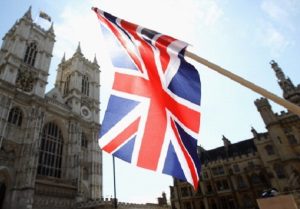NY judge says Trump will face no penalties in his criminal hush money case but upholds conviction
3 min readA New York judge ruled on Friday that former President Donald Trump will face no penalties related to his conviction in the hush money case, but upheld the conviction itself, rejecting Trump’s efforts to have the jury’s verdict thrown out. Judge Juan Merchan’s ruling ensures that Trump will still be a convicted felon when he takes office for his second term, marking a historic moment as the first convicted felon to hold the U.S. presidency.
The judge’s decision came as part of a broader legal battle that stemmed from a case involving payments made to adult film star Stormy Daniels to prevent her from speaking out about an alleged affair with Trump before the 2016 election. Trump’s former lawyer, Michael Cohen, facilitated a $130,000 hush money payment, which led to Trump’s conviction in May on 34 counts of falsifying business records.
Merchan set sentencing for January 10, just days before Trump’s second inauguration, signaling the continued importance of his legal matters even as he prepares for his return to office. The judge referenced Trump’s plans to appeal and noted that imposing no legal penalty would allow the case to reach finality while giving Trump the freedom to pursue his appeal without interference from any penalties.
The ruling stated that an unconditional discharge, meaning no jail time or financial penalties, would allow Trump to focus on his presidential duties while simultaneously handling the appeals process. Merchan also said that the proceedings for sentencing would be held remotely to accommodate Trump’s concerns about the demands of the presidential transition period, a move that was praised by legal analysts. CNN senior legal analyst Elie Honig noted that the decision effectively countered any arguments that sentencing could hinder Trump’s transition.
While Trump’s legal team had made efforts to have the conviction thrown out based on presidential immunity, the judge dismissed those arguments. Merchan cited the U.S. Justice Department’s internal legal opinions, which assert that a sitting president cannot face prosecution while in office. However, Merchan found that these opinions did not justify delaying Trump’s sentencing in this case. His conviction was based on actions that took place prior to his presidency, and Merchan found the case to be independent of any presidential immunity claims.
Trump’s legal team had initially sought to dismiss the case following the Supreme Court’s ruling on presidential immunity, which would provide Trump with broad protections related to his actions in office. They argued that the charges were linked to his official conduct as president. However, Merchan determined that the evidence presented in the case, including the hush money payments, did not relate to Trump’s duties as president and thus should not fall under immunity.
The ruling prompted mixed reactions. Manhattan District Attorney Alvin Bragg had argued that the conviction should stand, and the sentence could potentially be adjusted or delayed due to Trump’s election as president, but not dismissed outright. Trump’s spokesperson, Steven Cheung, expressed outrage over the decision, calling it a violation of the Supreme Court’s immunity ruling and suggesting that Trump should not face sentencing at all while he is transitioning back into the presidency.
Cheung described the decision as a direct violation of the Supreme Court’s ruling on presidential immunity, claiming that Trump should be allowed to continue his duties as president without interference from any legal penalties. Trump himself has repeatedly denied the affair with Daniels, and he continues to argue that the case is part of a broader effort to undermine his political career, calling it a “witch hunt.”
The case highlights ongoing legal challenges for Trump as he prepares for a second term in office. While he faces legal issues, his legal team continues to fight to have the conviction overturned, and the January 10 sentencing date will serve as a key moment in this saga. Trump’s focus will likely remain on his legal battles even as he moves forward with his presidential agenda.
Merchan’s decision represents an important development in Trump’s legal history, ensuring that he will carry the weight of a conviction into his second term while providing him an opportunity to continue appealing the case in the courts.








